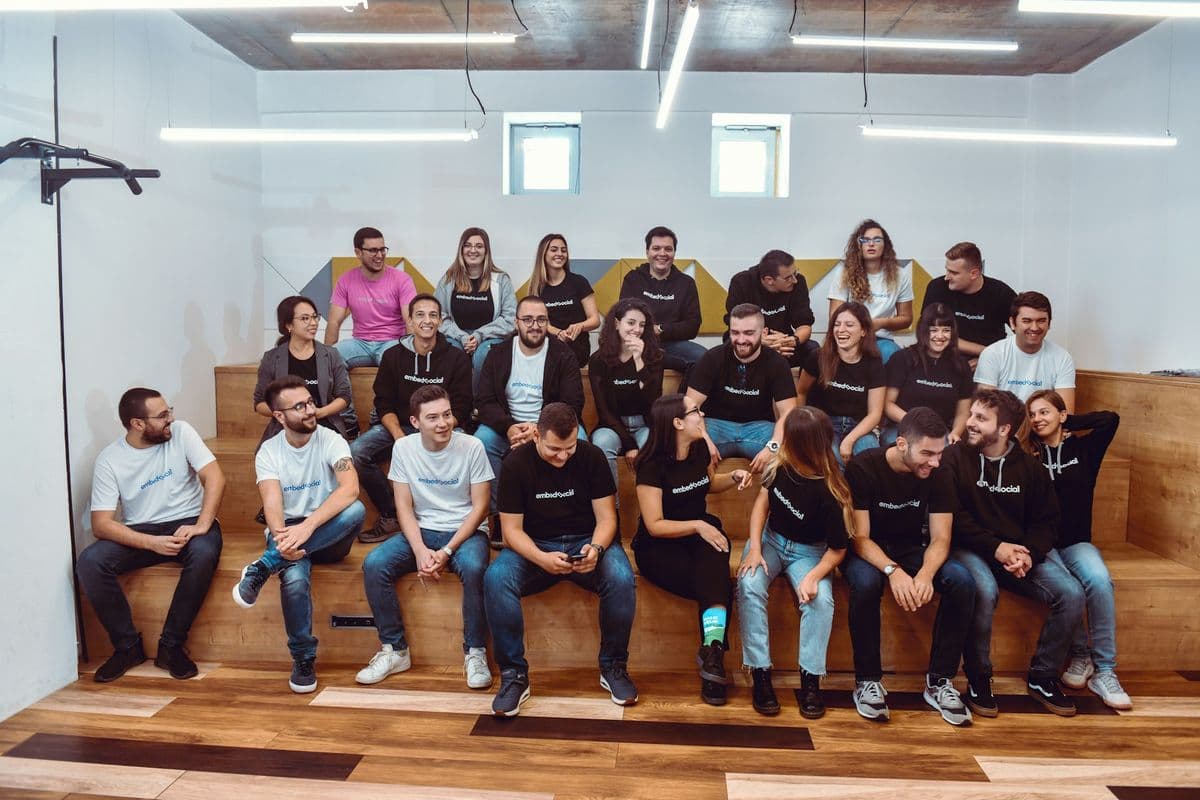Growing a startup isn't for the faint of heart. It's a race against time, resources, and competitors who are all chasing the same slice of the market.
But here's the thing, sometimes, running smarter will get you further than just running faster.
Growth hacks are the proven strategies that helped companies like Slack, Pinterest, and Spotify go from scrappy startups to household names. These are systematic, data-driven strategies, far beyond clever marketing tricks, that help create rapid growth without burning through your budget.
Think of it as finding a shortcut without cutting corners.
At its core, growth hacking is about experimentation. You test, you tweak, you listen to what your users are telling you—sometimes directly, sometimes through their behavior. And then you adapt.
It's a process of constant iteration, where even small wins can compound into major breakthroughs.
Because in the startup world, growth means scaling up while also building a foundation that lasts.
Proven Growth Hacks for Startups
When it comes to growth hacks, simplicity and creativity go hand in hand. The most effective strategies grab attention and build momentum. Here are proven tactics that skyrocketed some of the biggest names in tech and can be adapted for your MVP.
- Freemium Models (Slack's Playbook)
Slack's freemium model completely changed user acquisition. By offering free access to basic features like messaging, they eliminated barriers to entry, letting teams experience value firsthand. Paid plans gave users premium perks, like unlimited message history, making the upgrade feel natural and necessary. For startups, this approach is gold. Start small, offer a functional free tier, then upsell with irresistible features. - Invite-Only Exclusivity (Pinterest's Strategy)
Pinterest made waves by launching as an invite-only platform, creating FOMO (fear of missing out) before it was trendy. The exclusivity drove curiosity and word-of-mouth buzz. Beta invite programs create hype and help you gather feedback from real users, so your first users feel special and become your loudest ambassadors. - Free Trials (Spotify's Conversion Machine)
Spotify's free trials put premium in users' hands, ad-free listening, offline access, the works. After experiencing these benefits, users became reluctant to give them up.For startups, offering time-limited trials of your best features is a surefire way to convert curious testers into loyal paying customers. It's like giving someone a taste of what they didn't know they needed. - Customer Service as a Weapon (Zappos' Philosophy)
Zappos sold shoes while delivering memorable experiences. Legendary customer support, free returns, and round-the-clock availability turned buyers into lifelong fans.For your MVP, this means going the extra mile for early users. Respond quickly, solve problems, and make every interaction memorable. Delight breeds loyalty. - Gamification (Waze's Engagement Booster)
Waze turned driving into a game. Users earned points for reporting traffic, creating a fun, collaborative experience while improving the app. Gamifying your product nudges users to engage more, and when done right, it's addictive. Think badges, leaderboards, or rewards that align with your app's goals.
The secret ingredient across these strategies is experimentation. Test assumptions, collect data, and adapt quickly.
Keep scaling what works and scrapping what doesn’t. Because in this game, quick thinking and flexibility win every time.
Actionable Tactics for MVP Growth
When it comes to growing your MVP, experimentation is absolutely critical. You’ve got to test, tweak, and pivot until you find what sticks.
To help you accelerate growth, here are actionable tactics that can take your MVP to the next level:
You can also speed up market entry efficiently and get your MVP in front of users faster.
- Freemium Models
Offer the basics for free while reserving premium features for paid plans. This low-risk entry point lets users experience value first-hand, building trust and driving conversions. Slack’s freemium strategy nailed this approach, and you can adapt it by rolling out tiered pricing that scales alongside your users’ needs. - Invite-Only Launches
Exclusivity acts as a magnet for curiosity. Start with a beta invite program to make early users feel like insiders. Pinterest built massive demand this way, transforming scarcity into momentum. For your MVP, a limited-access rollout can spark the same kind of excitement. - Time-Limited Free Trials
Showcase your best features with a ticking clock. When users experience your premium offerings, they’ll see what they’re missing, and they won’t want to lose access. Spotify’s free trial model is a masterclass in conversion. Apply this to your MVP by offering a temporary taste of your app’s full potential. - Gamification
Make engagement feel less like a task and more like a game. Waze gamified contributions, turning users into collaborators. For your MVP, integrate leaderboards, rewards, or challenges to keep users hooked. Done right, it’s fun and quickly becomes addictive. - Data-Driven Refinement
Use analytics to understand what’s working and what’s falling flat. Then apply proven post-launch iteration techniques to refine your MVP swiftly.
The beauty of an MVP is its agility, don’t be afraid to adjust the playbook as feedback rolls in.
Growth thrives when you attract users and turn them into advocates.
Experiment, adapt, and scale.
That’s how winning startups transform ideas into movements.
Building Sustainable Growth with Growth Hacks
Growth takes time, creating a sustainable foundation lets you scale with confidence.
Growth hacking focuses on working smarter, and the best strategies match your specific goals and audience. Leading startups have shown how targeted tactics drive explosive growth - from Slack's freemium model and Pinterest's exclusive launches to Waze's gamification and Zappos' customer-first approach.
But remember: these strategies need to be tailored to your MVP and your users' needs.
Flexibility and iteration are the lifeblood of growth. Testing different approaches, gathering data, and pivoting quickly based on feedback are what separate startups that scale from those that don't.
Whether you're driving user acquisition, boosting engagement, or increasing retention, combining multiple growth hacks can amplify your impact. The most successful startups grow by delivering real value at every step and building loyal communities.
Growth takes time, creating a sustainable foundation lets you scale with confidence.
Ready to transform your innovative idea into a scalable, growth-ready MVP? Schedule a consultation with our team to start building your innovative app today.



